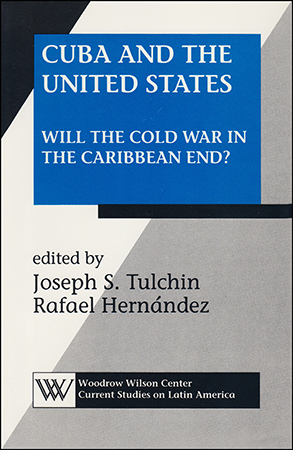
- 1991/145 pages
- Woodrow Wilson Center Current Studies on Latin America
Cuba and the United States:
Will the Cold War in the Caribbean End?
Covering a wide range of issues involving Cuba and the United States—from an even wider range of perspectives—this book is the result of a Wilson Center conference convened to discuss the future of relations between the two countries. The contributors focus on the political dynamics in each country and consider how those dynamics might be affected by the rapidly shifting international configuration of forces.
The book captures the conflicting ideological paradigms and the deep and powerful emotional content of the discourse between Cuba and the U.S. Deliberately balancing Cuban and U.S. views, it casts into high relief the issues that complicate a rapprochement and, in so doing, establishes the bases necessary for a clearer understanding of the domestic and international factors involved in any scenario for resolving the Cuban-U.S. conflict.







